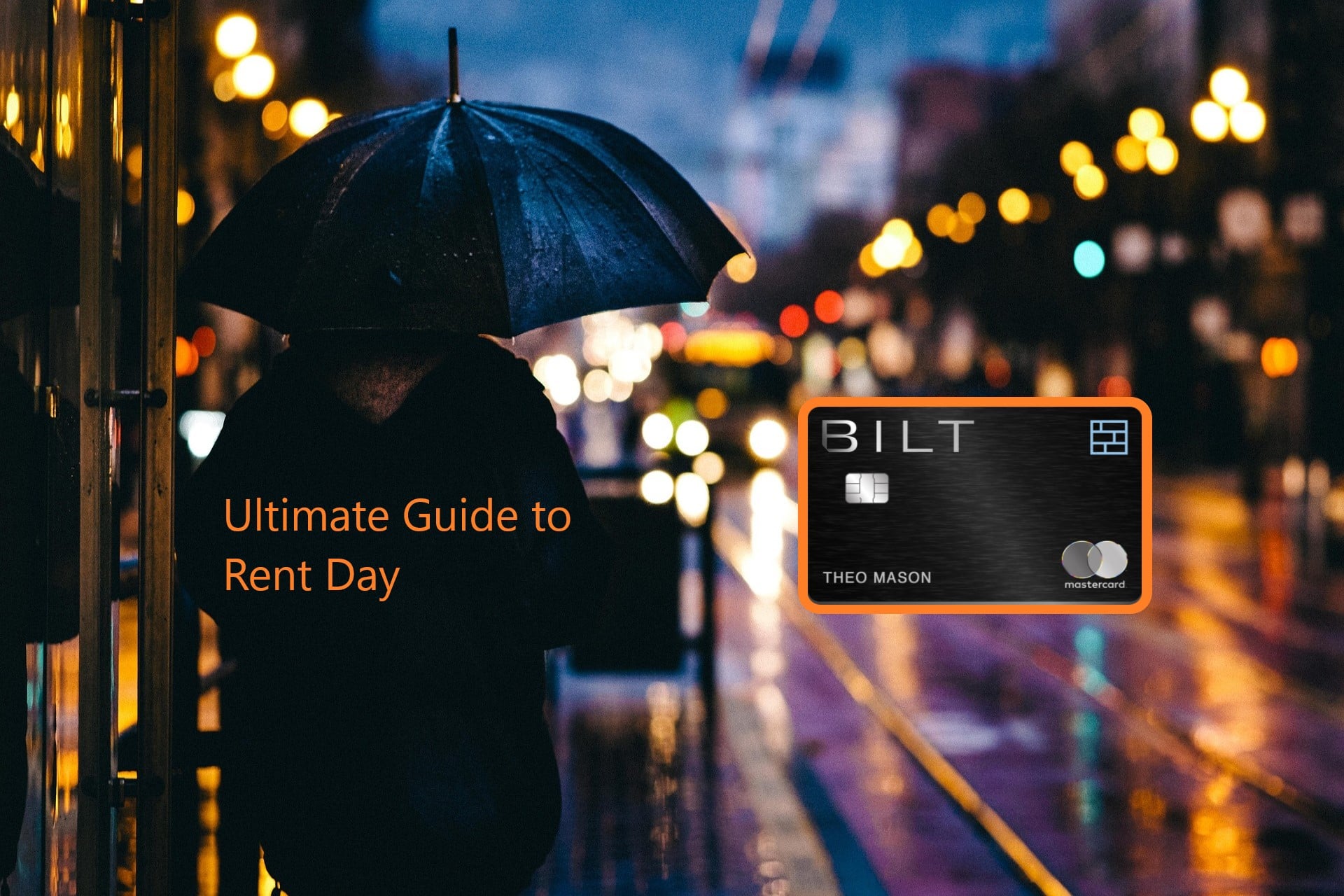Last updated on April 2nd, 2024
The holiday season is a time of joy and celebration but can also be a period of financial stress if you’re not careful. That’s why creating a holiday budget is crucial – by planning out your expenses ahead of time you can ensure a memorable holiday season without breaking the bank. Here’s how you can slay your holiday expenses by creating a credit card-friendly budget that works for you.
Table of Contents
At a Glance
- Take time to consider your past holiday expenses
- Identify your most important spending categories
- Find the right credit card to maximize your rewards
- Keep re-evaluating your plans and fine-tune them as needed
- Don’t forget about 2024 and your financial needs
Understanding Your Holiday Expenses
Before diving into the nitty-gritty of budgeting, it’s important to understand your holiday expenses clearly. Start by listing all the potential costs you might encounter during the holiday season. This can include gifts for family and friends, decorations, food and drinks, travel, and any additional activities or events you plan to participate in. By comprehensively understanding what you’ll be spending money on, you can ensure that your budget covers all the necessary items.
How to Create a Holiday Budget
Being proactive is the best way to stay ahead of your holiday costs. Getting an early start on your holiday planning ensures you won’t get caught out by unexpected expenses that can easily derail even the most carefully planned budget.
Assess Your Current Financial Situation
The first step to crafting your perfect holiday budget with credit cards is to examine your current financial situation closely. Take some time to review your income, ongoing expenses, and savings. This will give you a clear picture of how much you can spend during the holiday season. Consider any upcoming bills or obligations that you need to account for.
Beyond reviewing how your finances are shaping up, also examine the holiday seasons of years past and how they impacted your wallet. Look at your bank statements from last year to see where you spent the most, where you can identify wasteful spending, and if any unexpected expenditure occurred and where.
Lastly, divide your previous (and expected upcoming) spending into categories you can easily track. This will help to form a
Identify Your Spending Priorities
Separating your “wants” from your “needs” is important. Identify your spending priorities by considering what brings you joy during the holiday season. Is it spending time with loved ones, or do you prefer creating memorable experiences? By determining your priorities, you can focus your budget on what matters most to you and cut back on unnecessary expenses. And remember, the purpose of a holiday budget is to help you make intentional choices that align with your values.
Set a Realistic Budget
Once you fully understand your financial situation and priorities, it’s time to set a realistic budget for your holiday expenses. The easiest way is to start by allocating a specific amount of money to each category on your holiday expense list. Be sure to prioritize your spending based on what matters most to you. If gift-giving is a top priority, allocate more of your budget to gifts. If you enjoy hosting holiday parties, allocate more funds to food and decorations. The key is to create a budget that reflects your personal preferences and values.
An easy way to set a realistic budget is to jot down your expected expenses and understand where your biggest costs lay. Try ballparking estimates for gifts, holiday travel (including flights, hotels, gas, insurance, and other considerations), food, and entertainment costs. Decorations (including stuff like wrapping paper, stockings, etc.), and more. Also, consider any unplanned work time, such as unpaid leave for travel.
50/30/20 Budget Rule
A good rule of thumb for creating a budget is the 50/30/20 rule. The 50/30/20 rule of budgeting is simple and states that 50% of your after-tax income should be allocated to your needs. Next, 30% of your income should go towards your wants or nonessentials. And the remaining 20% of your income should be split towards savings and debt repayments.
Here’s a visual breakdown of this budgeting hack:
| % of budget | 50% | 30% | 20% |
|---|---|---|---|
| Allocation | Needs | Wants | Savings |
| Explenation | Things like rent, mortgage, groceries, medical expenses, insurance, etc. | Wants are your non-essentials like streaming subscriptions, gym memberships, dining out, vacation trips or travel, etc. | Things like regular savings, emergency funds, investing, debt repayment, etc. |
For more help with budgeting, check out our comprehensive Monthly Budget Calculator.
This budget planner effortlessly guides you through critical budgeting categories and helps you track all your monthly expenses. Whether you want to experiment with new strategies, pay off debt, buy your first home, or any other common plan, our Monthly Budget Worksheet will help you get the most out of your finances.
Compare Prices
To make the most of your holiday budget, it’s essential to do your research and compare prices. Take the time to shop around and look for the best deals. Compare prices online and in-store to ensure you get the best value for your money. Don’t be afraid to use coupons or take advantage of holiday sales and promotions. By being a savvy shopper, you can stretch your budget further and save significant money.
Using merchant offers from your card issuer is a great way to get value out of your budget by getting the lowest price possible. Issuers like Chase, Citi, American Express, and more offer additional discounts or exclusive rewards with select merchants. These offers can help you save money and earn cash back, miles, or other credit card rewards simultaneously.
Track Your Holiday Spending
Once you’ve set your budget and started making purchases, you’ll want to start keeping track of your holiday spending. Consider using budgeting apps or spreadsheets to help you track your spending easily (tools like Microsoft Excel or Google Sheets are great and simple). Record all your expenses, including receipts and online purchase confirmations, as this will allow you to stay on your budget and adjust as needed.
You can also count on your credit card issuer to provide detailed spending breakdowns. Ensure you consistently log in to your credit card accounts and review your transactions. Budgeting apps are another great source of information for tracking spending.
Manage Credit Card Usage
Credit cards can be helpful during the holiday season but can also lead to debt if not managed properly. Set clear guidelines for yourself to ensure that your credit card usage remains credit card-friendly. Stick to your budget and avoid making impulse purchases. If you use your credit card, make sure you plan to pay off the balance promptly.
Keeping your credit card balances low is essential to good credit health. As such, you should strive to keep your credit utilization (how much credit you actually use) low – ideally below 30%.
Our helpful Credit Card Utilization Calculator can help you track your spending and see how much you are overspending:
Once you identify your spending and credit card priorities, use the right credit card to maximize rewards in those categories. Consider using credit card rewards or cash back programs to maximize the benefits of your holiday spending. By being responsible with your credit card usage, you can enjoy the perks without falling into debt.
Cash Back
Cash back credit cards offer an easy way to save money this holiday season. Unlimited cash back cards, like the Citi Double Cash, TD Double Up Card, or the Upgrade Cash Rewards Visa®, offer streamlined rewards on all purchases and are great for earning decent rewards on all your holiday spending. Other options, like the Chase Freedom Flex and Discover It Cash Back Card, offer quarterly categories to help you plan. Discover is especially convenient in the holiday season thanks to its Q4 2023 5% cash back categories, which include Amazon.com and Target – two holiday and last-minute expense standbys.
Other Rewards
If you are also planning for an active 2024, an airline miles or hotel rewards credit card might help you streamline your budget for the next year by earning rewards this holiday season. Other cards, like the Bilt Mastercard, earn points on rent, meaning it might be a sound option if you are a renter looking to stretch your budget this year.
Adjust Your Budget When Needed
Your budget must be flexible and adjusted as needed as the holiday season progresses. Unexpected, and last-minute, expenses may arise such as presents or grocery bills – or you may want to allocate more funds to a specific category. Regularly review your budget and make necessary changes to stay on track. Remember, a budget is a tool that should work for you, not against you. Being proactive and adaptable can ensure that your holiday budget remains credit card-friendly.
Additional Holiday Planning Strategies
In addition to crafting a credit card-friendly budget, there are other holiday planning strategies you can implement to enhance your financial well-being further.
- Savings accounts: Consider setting up a separate savings account specifically for holiday expenses. This can help you save throughout the year and avoid financial stress during the holiday season.
- Celebrate your way: Explore alternative ways to celebrate the holidays, such as organizing a gift exchange or volunteering your time. These strategies can help you create meaningful experiences without putting a strain on your budget. DIY decorations or homemade gifts, or choosing potluck-style dinners where everyone contributes a dish instead of a single host footing the bill, are other alternatives to consider.
Summing It Up
Crafting a credit card-friendly budget is a powerful tool that can help you slay your holiday expenses. Following the step-by-step guide outlined in this article, you can create a budget aligning with your financial goals and values. Remember to take stock of your current financial situation, set a realistic budget, prioritize your spending, research prices, cut costs, track your expenses, manage your credit card usage, and adjust your budget as needed. By implementing these strategies and being mindful of your spending, you can enjoy the holiday season without breaking the bank. Happy budgeting and happy holidays!
Editorial Disclosure – The opinions expressed on BestCards.com's reviews, articles, and all other content on or relating to the website are solely those of the content’s author(s). These opinions do not reflect those of any card issuer or financial institution, and editorial content on our site has not been reviewed or approved by these entities unless noted otherwise. Further, BestCards.com lists credit card offers that are frequently updated with information believed to be accurate to the best of our team's knowledge. However, please review the information provided directly by the credit card issuer or related financial institution for full details.



